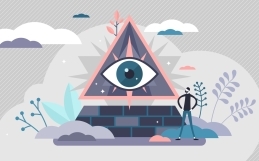“Sometimes you don’t realize you’re actually drowning when you’re trying to be everyone else’s anchor.”
– Author Unknown
“I just want to see everyone else happy,” sounds like such a nice sentiment. A beautiful and selfless statement. On the surface, there doesn’t seem to be anything wrong with that sentence; it’s probably the right thing to say to people in social situations. However, when you look beneath the surface, you can see that there’s a lot attached to that seemingly simple notion. Wanting to see everyone else happy is a big responsibility to carry. It’s a weight that you patiently ask others to relieve you of with their smiles, all the while failing to realize that you’re the one responsible for releasing it. It’s a responsibility that no amount of joy and laughter from others can take away, since receiving even a single frown from another person deletes, in your mind, all the happiness you’ve brought into the world.
Part of being in relationship with others is being invested in their wellbeing. Of course, we want to see the people we love happy. There’s no problem with that. The issues arise when we think we’re the ones who are responsible for that happiness. When we perform theatrics to see others happy, we ignore ourselves in the process and train ourselves to be uncomfortable around other people’s unhappiness. We then get fused, intertwined, and held down by how other people feel. We can’t feel good unless everyone feels good. When all of this starts to happen, it’s a sign that your very kind gestures have become your Achilles heel. It’s then that wanting to see everyone else happy makes you feel stuck, worthless, and like a failure.
Why does this strategy backfire on us?
Trying to make everyone else happy is an unattainable goal that will never be reached. It’s like trying to be perfect at everything we do; we’re really just setting ourselves up for failure and disappointment.
If you’re the kind of person who lives to make others smile, don’t beat yourself up over it. It’s a common thing, in order to feel secure in our relationships, we stop focusing on our own needs and put all of our energy into accommodating everyone else’s. This kind of behavior actually makes a lot of sense. If we can show others that we’ll make them our priority, it’s only natural to wish for them to appreciate it and return that love to us.
But things don’t usually work out that way. When we constantly give more than we get in return, it’s almost guaranteed that we’ll feel underappreciated. This pattern happens between romantic partners, friends, co-workers, family members, and any other relationship type you can imagine. The more consistently we take the same kinds of actions, the more these relationship patterns perpetuate, and the more likely we will continue these patterns in all of our relationships. Instead of seeing others happy and getting the love and acceptance you deserve, you we wind up receiving the very opposite.
A better and more attainable goal is to find what makes you happy and feel alive rather than getting hyper-focused on the needs and wants of others. Because the only person’s desires you can truly fulfill are your own. Everyone is responsible for their own internal happiness. By living a life that brings you joy and happiness, you’ll bring more love, joy, and happiness to the people who love you. And that will give them more time to find their own purpose, without having to worry about how they can show you they’re happy.
Did you enjoy reading this article?
Once a week I send out a newsletter with new articles and unique content for readers. It is my way of staying in touch with you and giving you free advice based on some important topics.
Click here to sign up for my newsletter.
Do you know someone that has a tough time in relationships? Steer them to my latest book, “When It’s Never About You: The People-Pleaser’s Guide to Reclaiming Your Health, Happiness and Personal Freedom.” It is available to order here!
Talk soon,
Dr. Ilene






Chew gum if you’re nervous.You can trick your brain to reduce the nerves. Our brains are wired to believe that we are safe if we are eating. After all, cavemen wouldn’t sit down to a meal if they were being chased by a bear. Don’t chew gum during your interview or audition, but a piece of gum while you wait might help ease your anxiety.
you have brought up a very good details , appreciate it for the post.